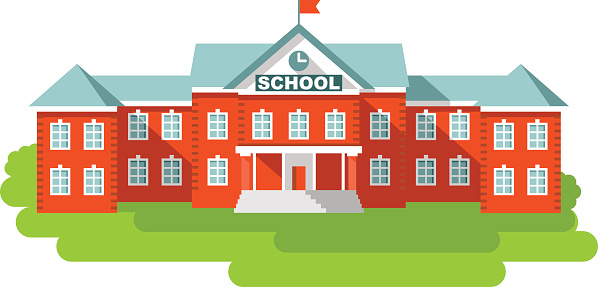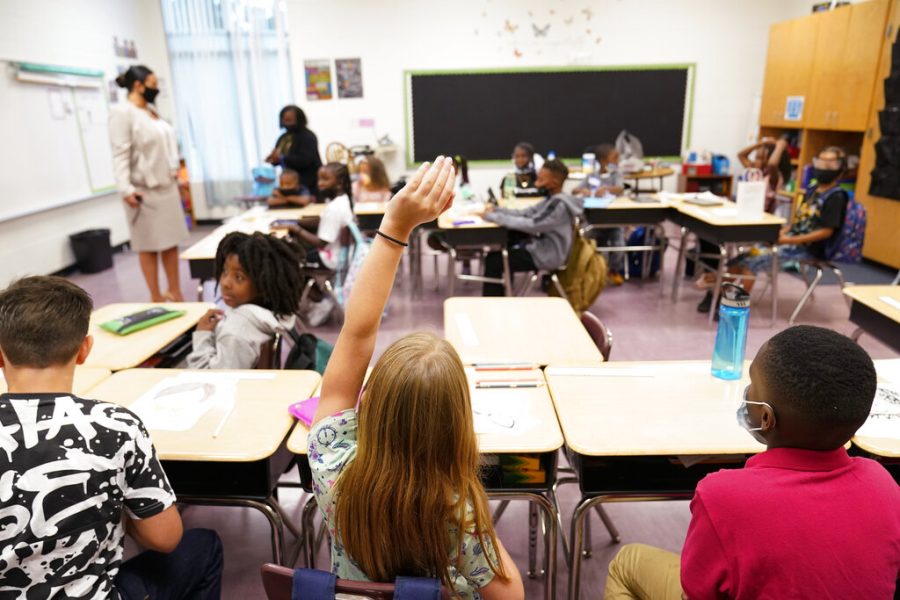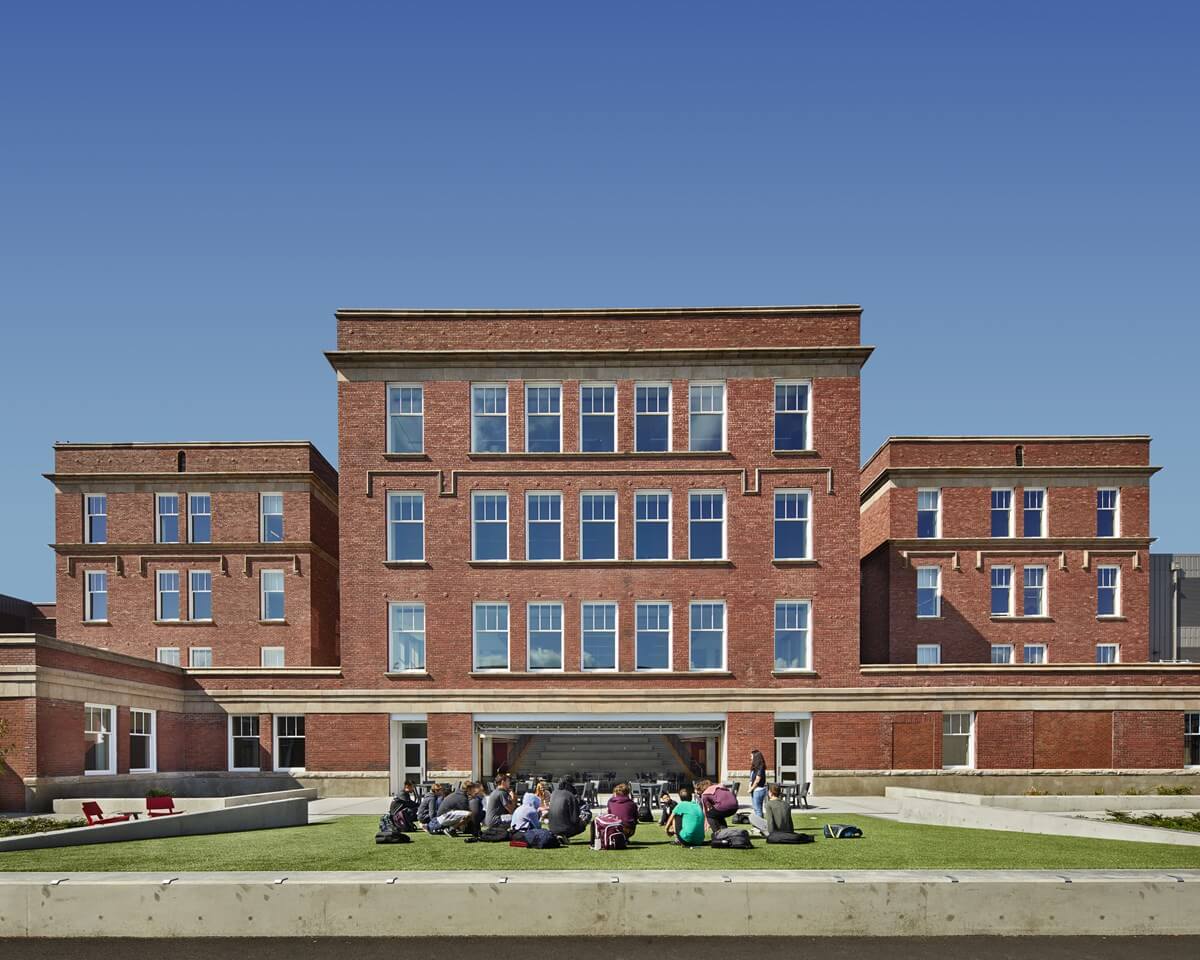Comprehending the Significance of Schools in Child Growth and Community Growth
Colleges' engagement with local communities with service-learning campaigns reinforces the bond in between households and instructional organizations. This symbiotic relationship underscores the value of institutions in supporting energetic citizenship and lifelong knowing practices.
Academic Success
Academic achievement offers as a foundation of child advancement, giving the foundation upon which future learning and success are built. Colleges play an essential duty in cultivating this academic growth, using organized settings where kids can obtain important expertise and cognitive skills. Standard curricula make certain that pupils gain effectiveness in core subjects such as mathematics, scientific research, and language arts, which are crucial for both college and expert chances.
Along with giving basic scholastic abilities, institutions likewise grow crucial reasoning, analytic abilities, and intellectual interest. These cognitive expertises are essential for navigating complicated real-world circumstances and adjusting to the ever-evolving needs of the modern-day work environment. Teachers, as facilitators of knowing, utilize diverse instructional techniques to provide to varied understanding styles, therefore taking full advantage of specific trainee capacity.
In addition, academic success is carefully connected to self-esteem and motivation. Kids who experience scholastic success are most likely to establish a positive self-concept and a long-lasting interest for knowing. Colleges additionally provide numerous sources, such as libraries and technology, which additionally boost the instructional experience and prepare students for a technically sophisticated society.
Social Skill Growth
Beyond academic success, the function of schools in social skill development is essential. Schools work as a key location for kids to find out and exercise crucial social abilities such as teamwork, problem, and interaction resolution. In the organized environment of a class, pupils connect with peers, instructors, and various other college team, offering countless opportunities to establish these vital capacities.
Effective social ability development in colleges is facilitated via team tasks, collaborative tasks, and extracurricular programs. These interactions help trainees understand social standards, construct empathy, and promote a sense of neighborhood. Group assignments educate students just how to work with each other in the direction of a common objective, pay attention to different viewpoints, and navigate arguments constructively.

The growing of social abilities during academic year lays a structure for future personal and specialist relationships. Save Temecula Schools. As trainees develop, the capability to efficiently connect and collaborate becomes significantly important, emphasizing the college's critical role in all natural youngster development
Exposure to Variety
Direct exposure to diversity in institutions is fundamental to fostering a comprehensive way of thinking and expanding students' viewpoints. Schools function as a microcosm of the more comprehensive society, and encountering diverse cultures, languages, and socioeconomic histories within this environment outfits pupils with important skills for browsing a progressively globalized world. This direct exposure encourages empathy, reduces bias, and promotes common respect among peers.
Study shows that pupils that engage with peers from varied backgrounds exhibit better analytical skills and imagination. This understanding of diversity prepares pupils for future work environments that value modern proficiency - Save Temecula Schools.

Area Engagement
The benefits of diverse class prolong beyond the college wall surfaces, fostering a solid feeling of area engagement amongst trainees. By connecting with peers from various social, socioeconomic, and ethnic backgrounds, students acquire a more comprehensive point of view and an admiration for variety. This direct exposure urges them to come to be energetic people who are ready to add favorably to their communities.
Schools that emphasize community interaction often integrate service-learning tasks, which allow trainees to address real-world issues while applying academic abilities. These projects not just improve trainees' understanding of their coursework however likewise instill a feeling of responsibility and empathy. Collaborations between schools and local organizations offer trainees with possibilities to get involved in community occasions, better solidifying their function as proactive neighborhood members - Save Temecula Schools.
Additionally, adult and neighborhood participation in colleges strengthens the bond in between academic establishments and the areas they serve. They produce a joint setting that profits all stakeholders when schools open their doors to area occasions, workshops, and volunteer possibilities. This this hyperlink shared support system ensures that pupils receive holistic advancement, preparing them to become all-around individuals that contribute and value to their areas. Via these efforts, colleges play a pivotal duty in nurturing community involvement and fostering social growth.
Lifelong Learning Habits
Establishing lifelong learning habits is important for a youngster's constant development and adaptability in an ever-changing globe. Schools play a crucial function in instilling these habits by producing a setting that cultivates inquisitiveness, vital reasoning, and a love for knowledge. With extracurricular tasks and diverse curricula, educators urge trainees to explore different topics, evaluate information seriously, and use their discovering to real-world situations.

Furthermore, schools supply a structured setting where children can create self-discipline and time administration skills, both of which are crucial for continual discovering. By stressing the significance of establishing objectives, showing on development, and adapting approaches, universities prepare students to browse the intricacies of adult life, ensuring they stay lifelong students and factors to culture.
Final Thought
In final thought, colleges are vital in cultivating child growth and area growth by giving settings favorable to scholastic achievement, social skill advancement, and exposure to diversity. Inevitably, schools cultivate lifelong understanding behaviors, gearing up individuals with the needed expertise and abilities to contribute positively to culture.
In the organized environment of a classroom, pupils connect with peers, teachers, and various other school staff, supplying various chances to create these important capabilities.
In significance, direct exposure to more information diversity within institutions not only enriches specific students yet additionally strengthens the social textile of the area as a whole.
The benefits of diverse class prolong past the school wall surfaces, promoting a strong feeling of neighborhood involvement amongst students.Institutions that emphasize area involvement frequently integrate service-learning tasks, which enable pupils to attend to real-world troubles while applying scholastic abilities. Partnerships between schools and local organizations provide students with possibilities to take part in neighborhood occasions, further solidifying their role as proactive area members.